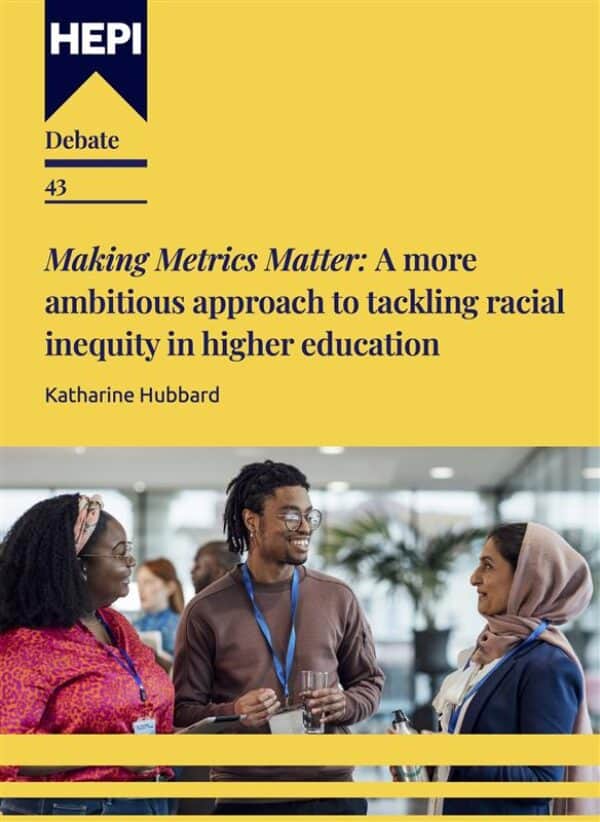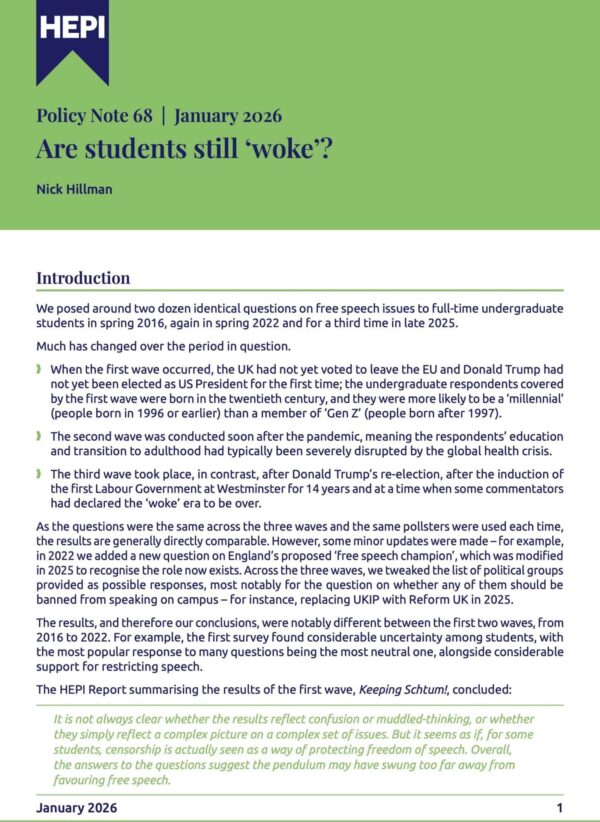The Language Crisis: How can we increase working-class uptake in languages?
This blog was kindly authored by Lee Marney, a recent graduate of the University of Manchester.
Introduction
Megan Bowler’s recent HEPI report lays bare the problems that language educators are experiencing in the face of declining uptake of modern foreign languages (MFL) at both post-14 and post-16 levels since the removal of compulsory foreign language Key Stage 3 in 2004.
The report is a fascinating insight into how language learning is indeed more vital than ever in the face of artificial intelligence, and the skills acquired are beneficial not only to individuals who learn MFL, but also to local communities and the economy.
MFL and pupils for lower socioeconomic backgrounds
With just 6 per cent of AS/A- Level students studying French or Spanish being eligible for Free School Meals, policymakers must do more to remove barriers to entry to language learning for students from socioeconomically disadvantaged backgrounds. This is imperative, given that MFL uptake at both post-14 and post-16 is most common among students whose household income was above the national average, with uptake notably highest among students from socioeconomically advantaged households (£78,000 or more).
The report recommends various measures to promote language educational uptake. However, more ought to be done to target groups of students who have disproportionately low participation in MFL to address the current language learning crisis, particularly through the form of:
- offering alternative qualification pathways; and
- reforming curriculum through utilising heritage languages (A heritage language is a minority language, migrant or indigenous, learned at home during childhood) to move away from a Eurocentric model of MFL across all Key Stages.
Beyond the Euro-centric approach
As far back as 1975, curriculum reformers have argued that languages spoken by migrant families are a cultural asset to the UK. Multilingualism is already ubiquitous in British society, with 90% of schools having students for whom English is their additional language, with over 20% of students having a first language that is not English. The most common first languages among these students are Romanian, Urdu, Polish, Punjabi, and Arabic. Indeed, schools already possess a rich linguistic tapestry that is, currently, being underutilised.
In the U.K, roughly 75% of ‘underrepresented groups’ have knowledge of a heritage language, including working-class and Black, Asian and Minority Ethnic (BAME) communities. Despite this, 82% decide not to pursue a formal qualification due to the push in schools towards the big three: French, Spanish, and German.
Overhauling the current Eurocentric MFL curriculum that understates the role of heritage languages is vital to aid the language crisis. The current exam-focused system fails students who speak heritage languages, restricting their ability to fully maximise their language capabilities. A new model that embraces the UK’s diverse tongues would boast both cultural and economic advantage, given that the UK’s lack of language skills cost the UK economy around 3.5% of GDP.
An applied approach to language learning
Megan Bowler’s report suggests a level three certificate in Applied Languages to boost post-16 participation in MFL. However, to appeal to working-class students, governmental policy should also encourage post-16 education institutes to incorporate language components in the new technical qualification T-Levels such as marketing, media, and management and administration. While not exclusively for working-class students, this would specifically benefit them by creating a pathway to use languages in professional settings. This is pertinent when considering that students from socioeconomic advantaged backgrounds have more opportunities to use their language capabilities when engaging in their international travelling lifestyle, conceptualising their MFL as useful outside of an academic setting, allowing for more opportunity to construct a world view. One such model is the diplôme de compétence en langue in France that takes a holistic approach to language learning for professional competence development. Bodies such as the British Academy have also recommended this. This type of linguistic competence development is essential to ensure UK competitiveness in a globalised economy, given that small and medium-sized enterprises (SMEs) are 30 per cent more successful in exporting when they utilise language capabilities.
Conclusion
While policy can be a useful top-down tool to encourage MFL uptake, Megan Fowlers report rightfully points out that it must be accompanied by an ethos that reformulates the way in which we view the skills accrued by MFL learning. However, one must also be able to acknowledge that policy is a vital tool in encouraging that ethos growth by uplifting the linguistic diversity of this country’s working class. By reforming qualifications and allowing curriculum content to reflect the linguistic diversity of the UK and beyond, policymakers can ensure MFL are a tool for social mobility.






Comments
Brendan McAteer says:
Very interesting. As a language graduate myself, I believe it is important that they remain accessible to people from all backgrounds. Excellent work Lee!
Reply
albert wright says:
The ability to speak more than one language brings many benefits to the student and society.
We should encourage efforts to expand the learning of all foreign languages by providing qualifications at level 2 and above and focus recruitment on the students who are already familiar with a particular language through prior experience.
Every secondary education institution should offer “ language clubs” to their students by using parents who speak languages other than English. These could be hosted at the school outside of normal teaching hours.
By rewarding disadvantaged students with language qualifications could improve their overall morale and commitment to learning.
Reply
Jaz Abdurashidova says:
Great piece, Lee! Love how you highlight the importance of valuing heritage languages and making languages feel relevant for everyone. Really hope more people in education take this on board.
Reply
Jonathan Alltimes says:
Confidence in spoken English in small group discussions.
Preparatory work before group discussions.
Confidence in spoken foreign language in small group discussions.
Memorising core vocabulary for technical registers.
Immersion is the best.
Reply
John Claughton says:
This issue has to be addressed in the early years so that pupils arrive in secondary schools with a positive attitude to languages. At the moment 96% of primary language teaching is or Spanish and there is little or no attention paid to the 200 languages spoken in primary schools. So, why don’t we do something that builds on this diversity, giving value to pupils’ own knowledge and culture and history, and enabling them to know and understand each other better. As Nick Hillman knows, the answer to all these issues is a languages project called WoLLoW, https://theworldoflanguages.co.uk/
Reply
Peter Simmons says:
It is refreshing for an article to at least start to recognise that French, German and Spanish are not the only foreign languages spoken. But the terminology used points to the problem ‘modern’ versus ‘heritage’. There are many communities throughout the UK for whom French, German and Spanish will never be useful. Changing the discussion to second rather than modern and being more flexible, with many more languages available ideally tailored to communities would leverage the diversity, would likely improve the take up and be a much more popular and useful.
Reply
Add comment